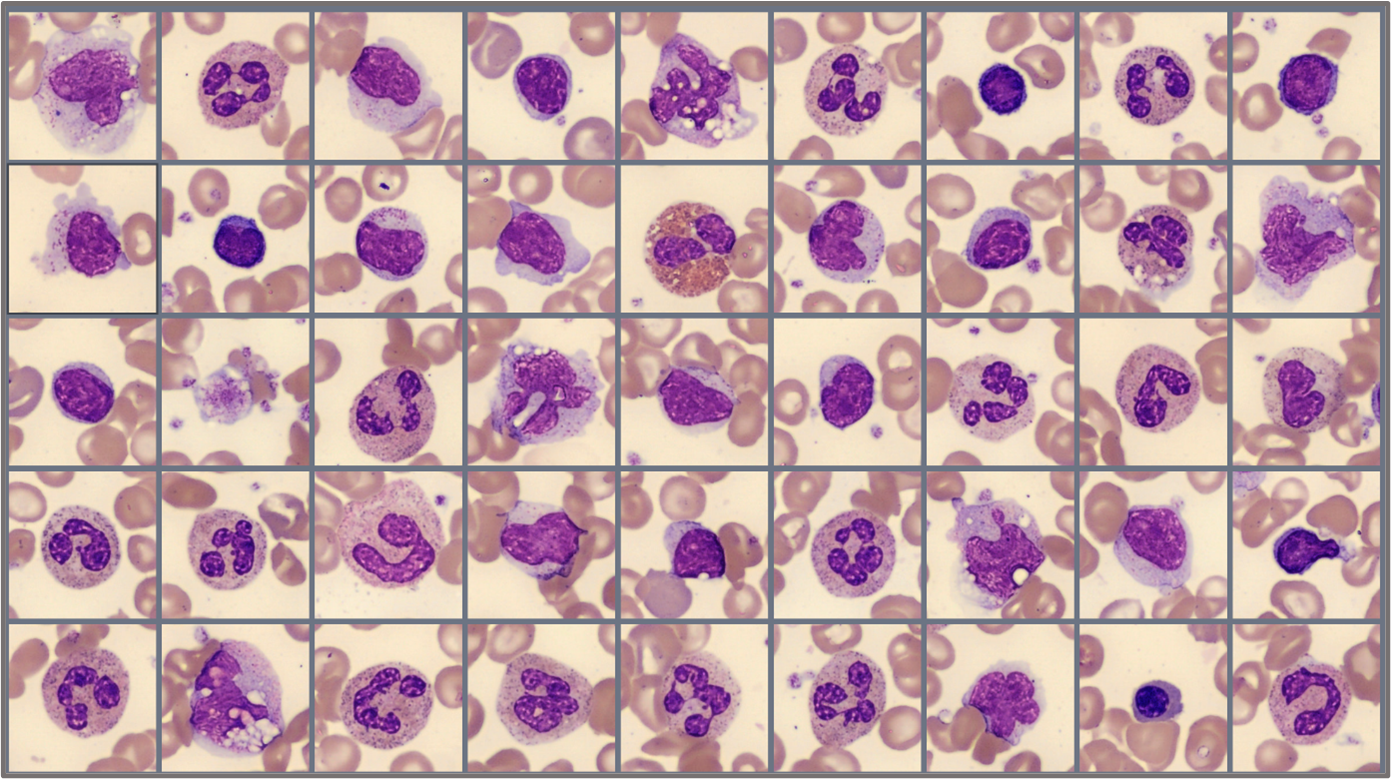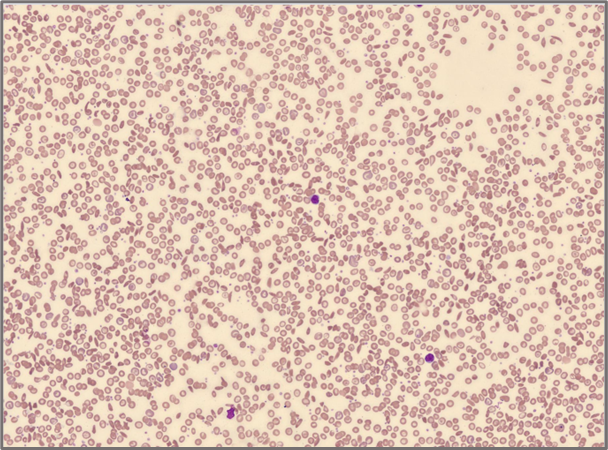Global test 2024:1 - Sickle cell anemia
Case Description
A 15-year-old male was seen in the hospital emergency room with severe unspecified pain.
Laboratory Findings
| Test | Result | Reference Interval | Unit |
| WBC | 15.1 | 4.5-11.5 | x109/L |
| RBC | 3.13 | 3.5-5.5 | x1012/L |
| HGB | 10.2 | 14-17.5 | mg/dL |
| HCT | 28.6 | 40-54 | % |
| MCV | 91.4 | 80-100 | fL |
| MCH | 32.6 | 27-31 | pg |
| MCHC | 35.6 | 32-36 | g/dL |
| RDW | 25.6 | 11.5-15 | % |
| PLT | 393 | 150-450 | x109/L |
Sample of cells classified in the Global Test 2024:1

RBC Overview

Case Conclusion
CBC data indicate slight leukocytosis, mild anemia, and normal platelet count. Normal absolute neutrophil count and absolute lymphocytosis. Blood smear: Relatively normal WBC morphology. Lymphocyte population consisted of normal small lymphocytes, some with cytoplasmic distortions; LGLs; and a few larger lymphocytes with variable nuclear contours. Rare NRBC. RBC morphology was characteristic of sickle cell anemia including sickle cells, target cells, anisocytosis, polychromasia, and Howell Jolly bodies.
Global Test 2024:1 Results Webinar
Questions discussed during the webinar include:
- Compare participant and examiner results
- Discuss underlying cause(s) of lymphocytosis and morphological changes in lymphocytes
- Correlate clinical and laboratory findings with pathological mechanisms
- Differentiate sickle cell anemia from other sickle cell diseases
- Describe various tests used to diagnose different hemoglobinopathies
- Discuss how two recently approved cell-based gene therapies may offer a cure for sickle cell anemia